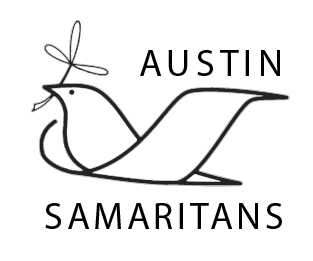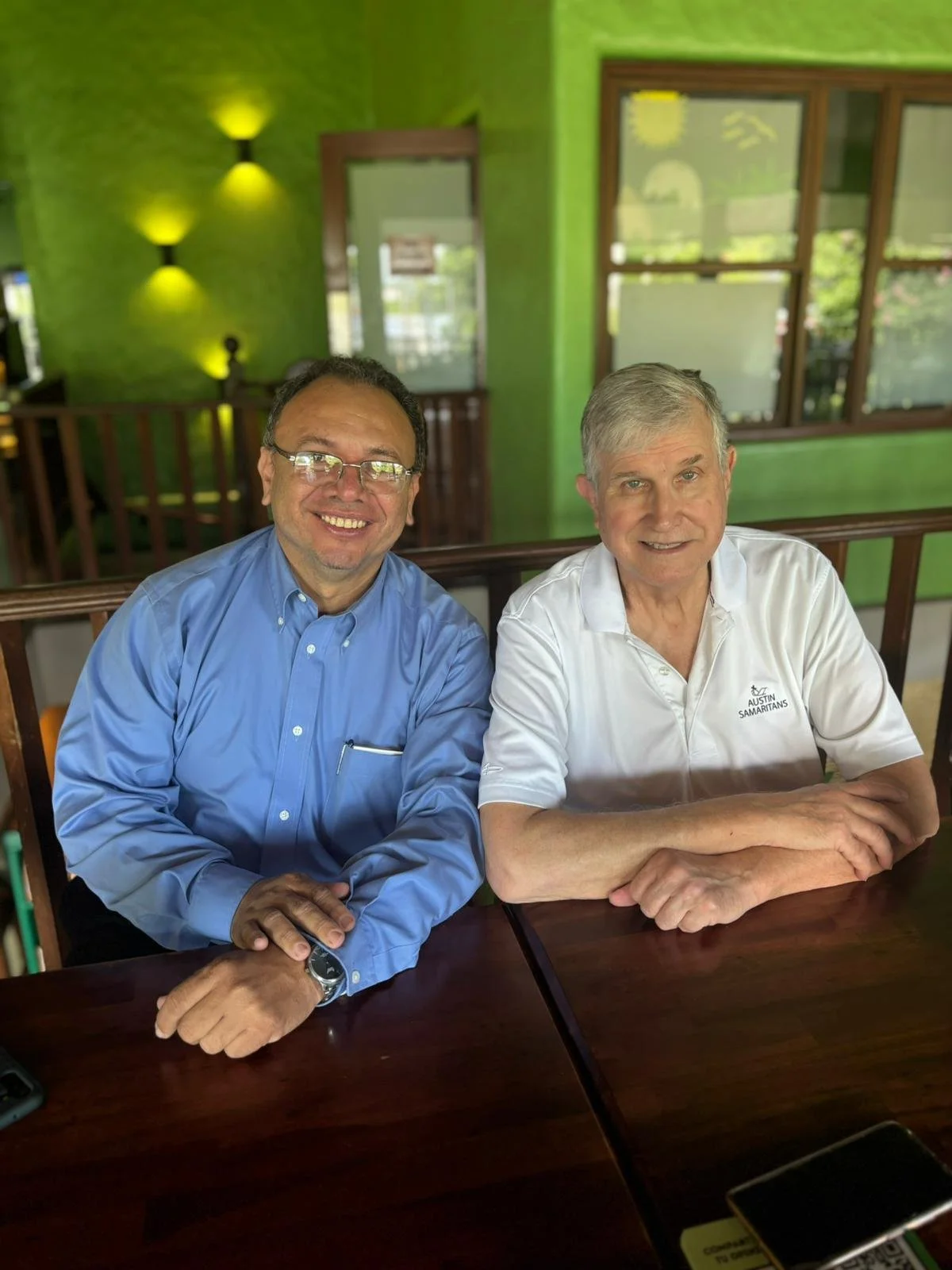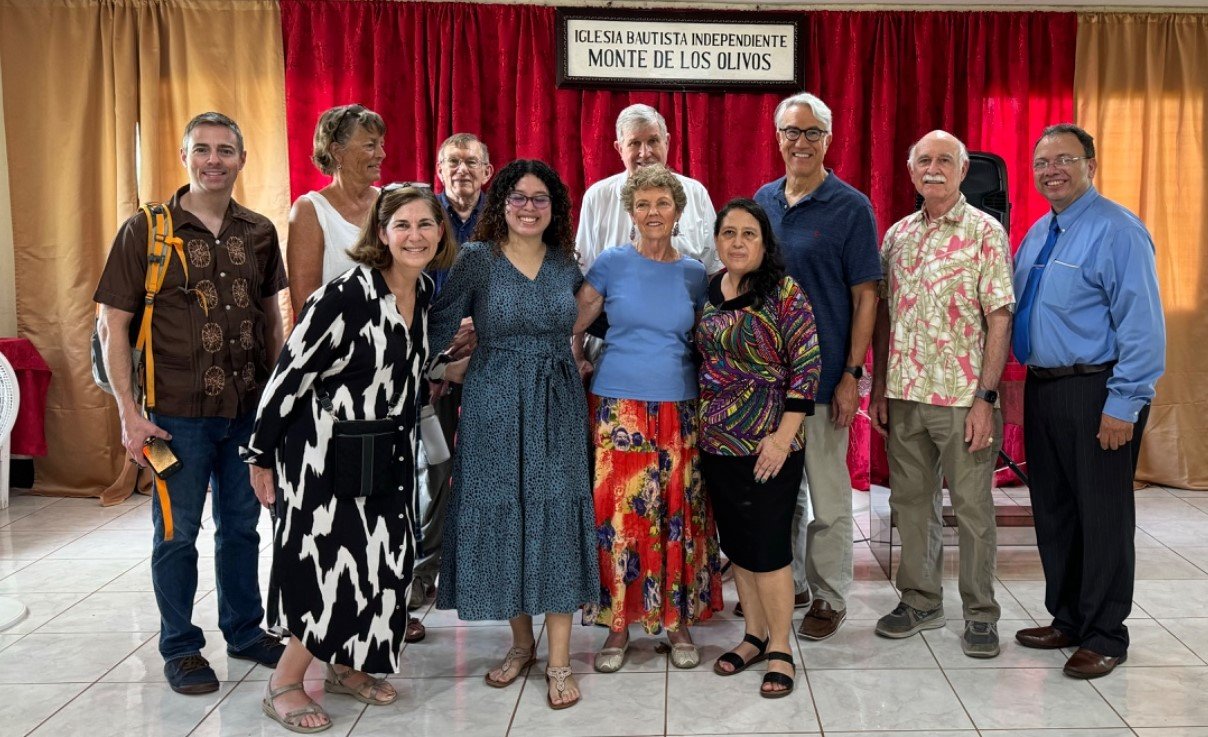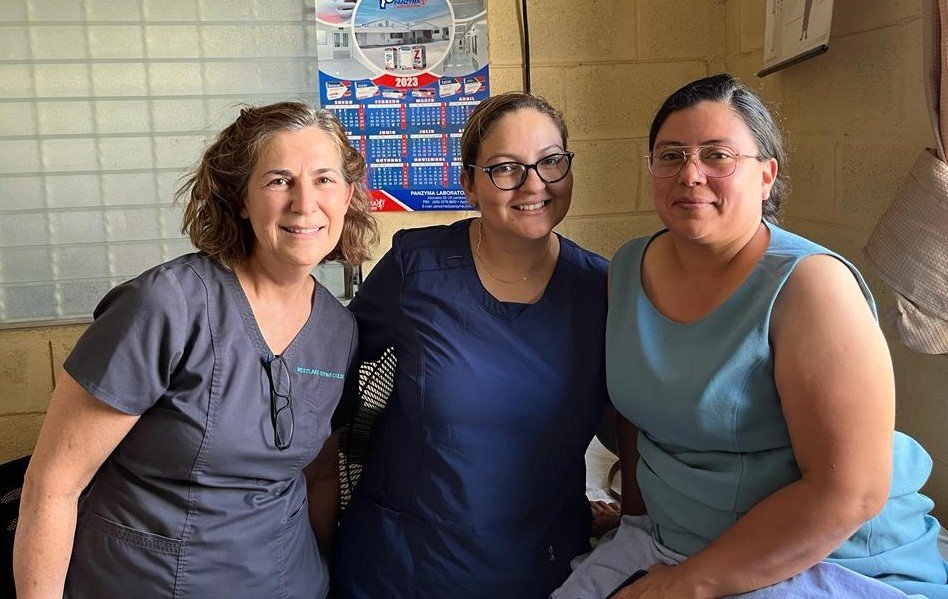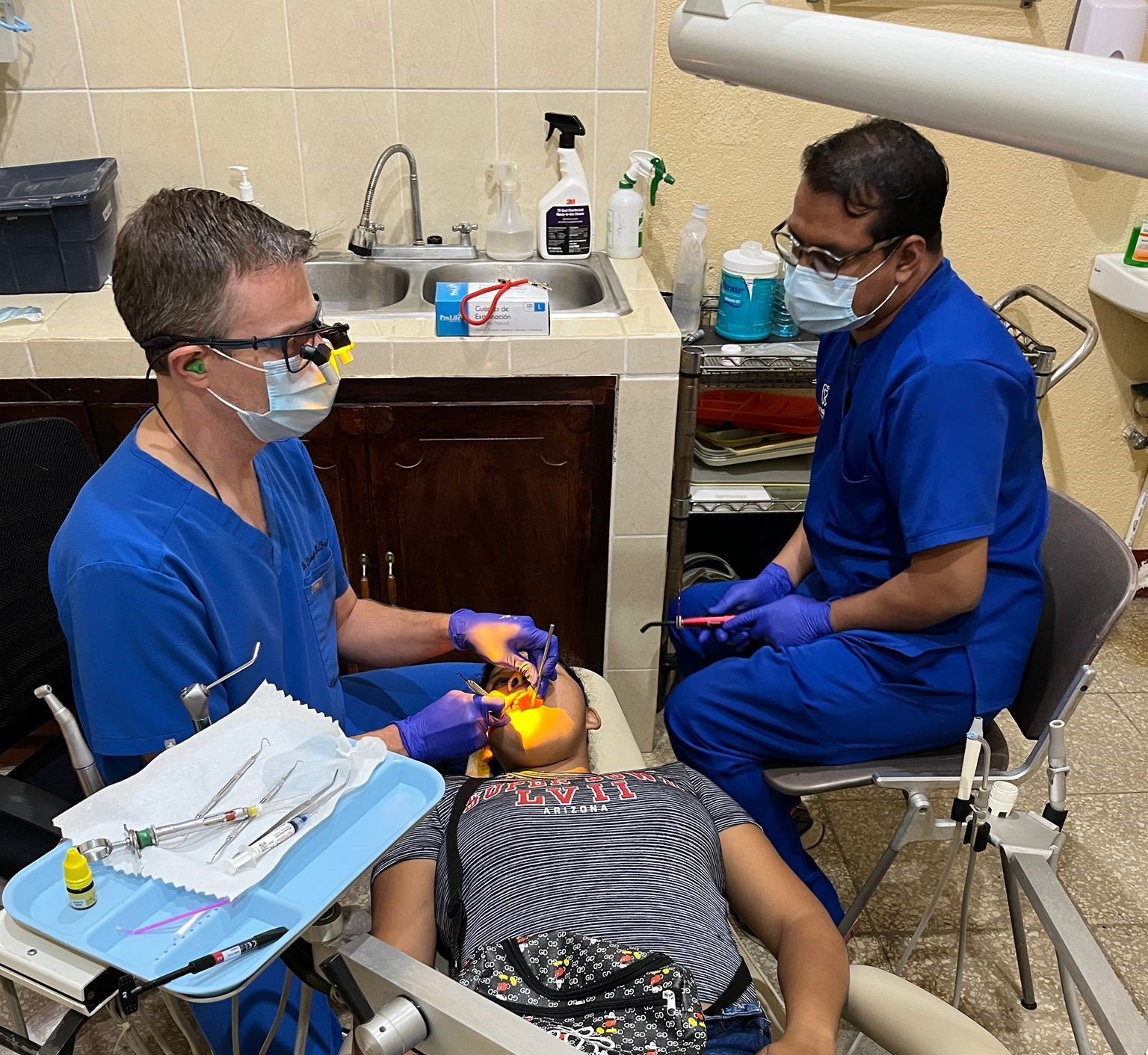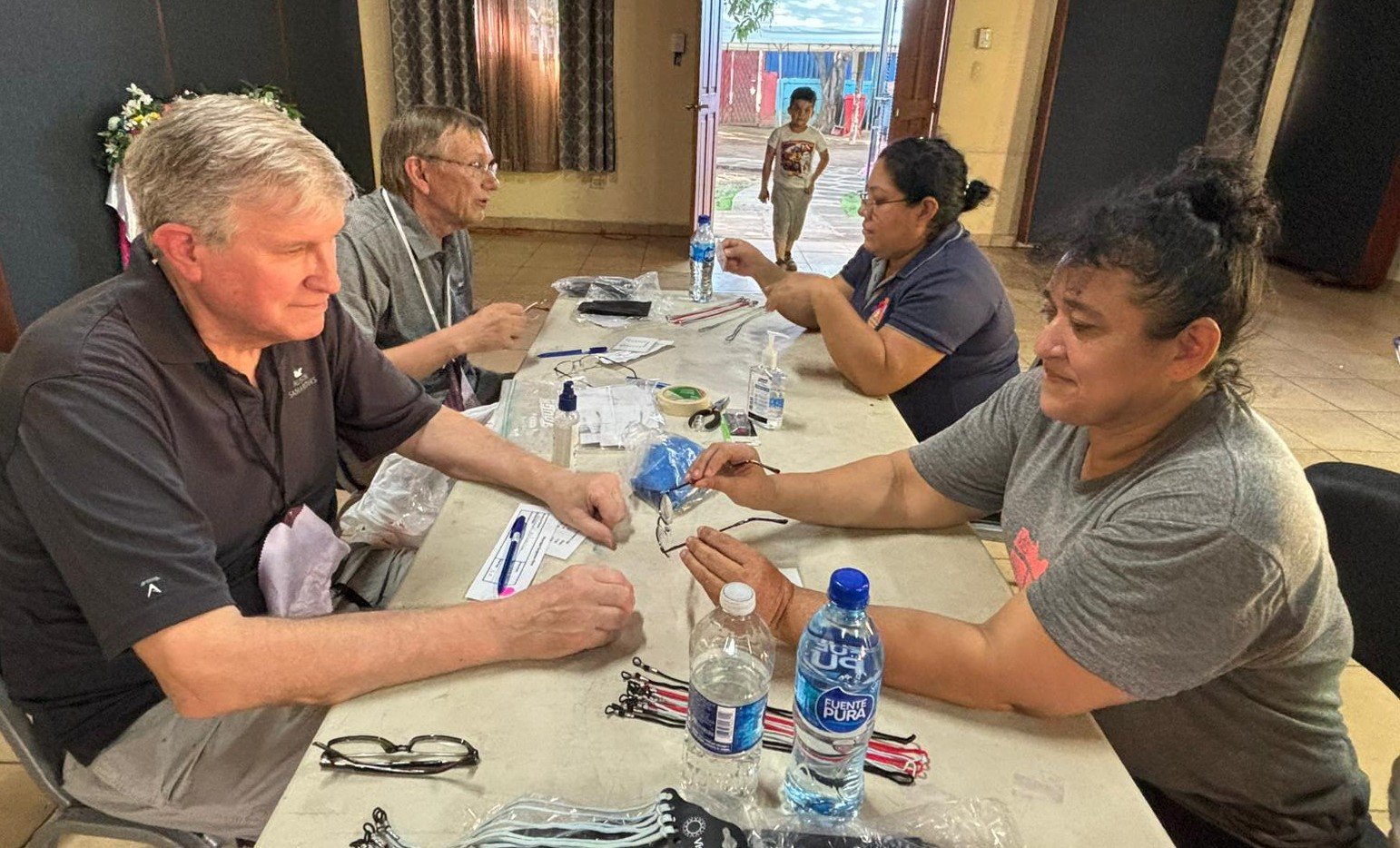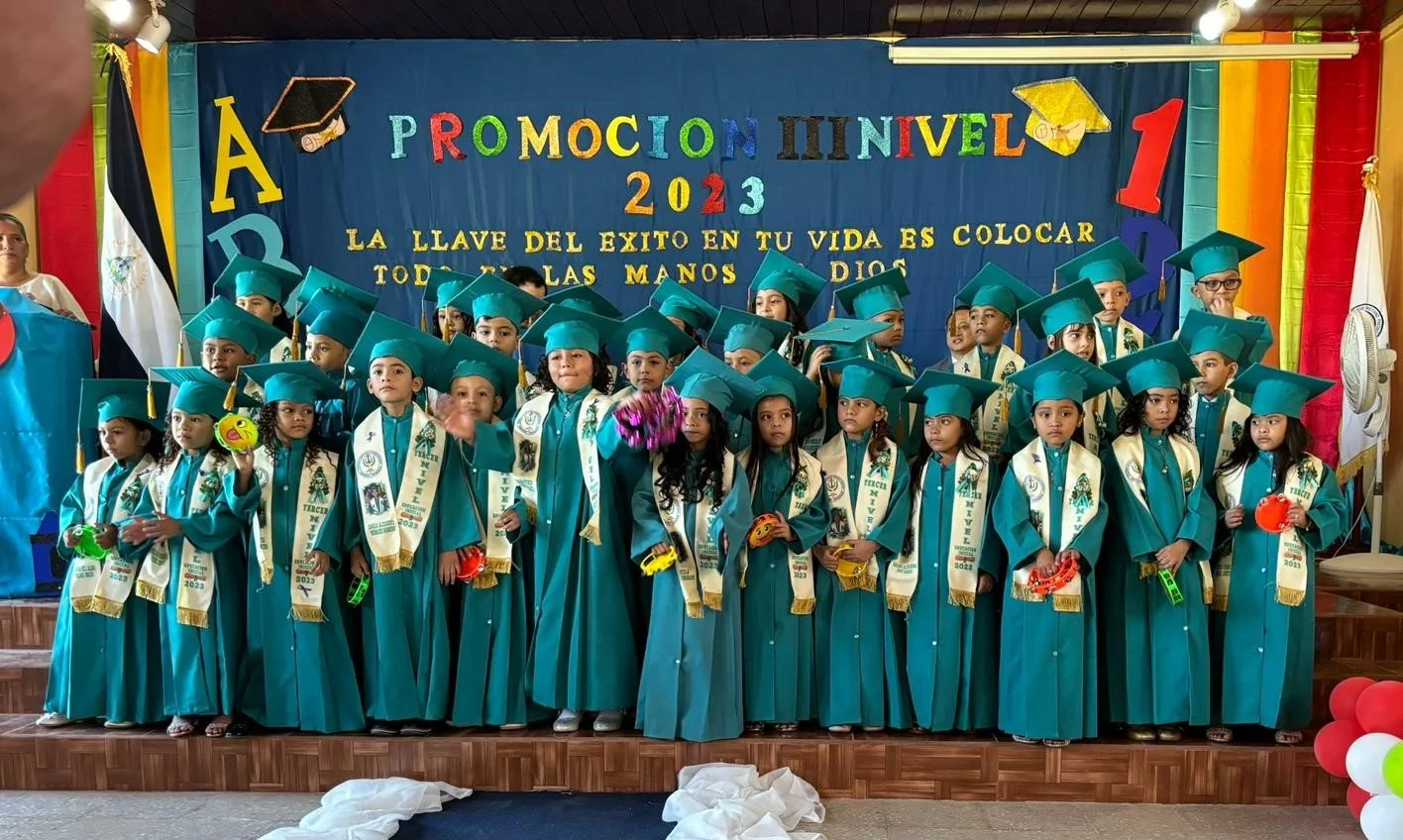We had another successful year providing support to truly deserving communities in Managua, Nicaragua. Earlier this month, we were especially pleased to once again lead a team on a mission trip. This gave us an opportunity to connect, in person, with the ministries we support, to provide additional services in the areas of education, health and dental care, and to observe the impacts of the work of our mission associates.
Our mission team consisted of nine participants; and we were welcomed by our mission associates, who were excited to host and brief us. Not only did we feel overwhelming love and appreciation from the leaders of each ministry, but also from the children, the families, the patients, and the students they serve.
We are proud to report accomplishments from this trip, which included the following:
Women’s Clinics were hosted at both Clinica El Samaritano and Clinica Villa Guadalupe. Dr. Shannon Abikhaled, Austin Samaritans board member and OBGYN doctor on our team, treated 20 gynecological patients and 17 obstetric patients.
The dentist on our team, Dr. Russell McFarlane, treated 22 patients and provided 9 fillings, 4 extractions, and 9 cleanings at Clinica El Samaritano’s dental facility. Most of the cleanings were for patients that had never had a cleaning.
Vision clinics to distribute reading eyeglasses were held at 4 ministries. Our mission team distributed over 350 reading eyeglasses to individuals.
Mission team members attended graduation ceremonies for pre-school, elementary, and high school students at Colegio Cristiano Presbiteriano (CCP) and pre-school and elementary school graduations for Centro Educativo La Esperanza. Dr. Doty gave the message at the CCP graduations.
Our mission team distributed 54 gift bags at Bertha Calderon Hospital, a public hospital that cares for women with cancer. The bags included bandanas and sample-size hygiene products. The bags were donated by Bosom Buddies, an Austin support group for women who are survivors of breast cancer.
The team was given a tour of the women’s cancer clinic, Fundacion Ortiz Gurdian (FOG) by Annie Ortiz and Priscilla Urcuyo. Dr. Ana Patricia, clinic director for AMOS, accompanied our team on the tour. There was a discussion about the possibility of FOG and AMOS coordinating their efforts in a way that would be beneficial to both groups.
We return with great memories of the beauty and culture of Nicaragua. However, and more importantly, we also remember the need and appreciation that we witnessed, the transformations and impacts achieved by our mission associates, and the possibilities for the future identified by our mission associates as they continue working to improve their communities. For that we feel truly blessed this Advent season.
John Doty, M.D.
Founder
